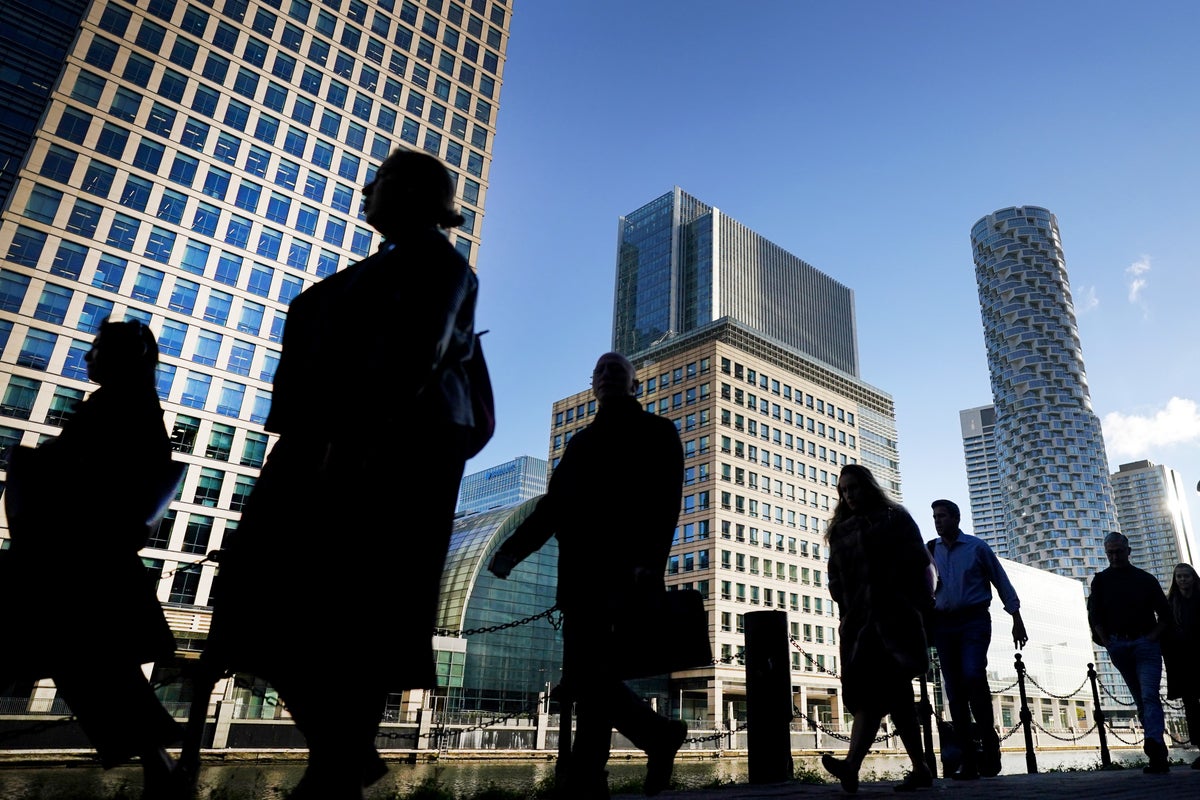UK inflation has slowed down for the second month in a row on the back of falling petrol prices, new official figures have revealed.
The Office for National Statistics (ONS) said the rate of Consumer Prices Index (CPI) inflation eased to 2.6 per cent in March, from 2.8 per cent in February.
It was a steeper drop than predicted by economists, who had expected a reading of 2.7 per cent for March, and marks the lowest reading since December.
ONS chief economist Grant Fitzner said: “Inflation eased again in March, driven by a variety of factors including falling fuel prices and unchanged food costs compared with the price rises we saw this time last year.
“The only significant offset came from the price of clothes, which rose strongly this month, following the unusual decrease in February.”
Chancellor Rachel Reeves said: “Inflation falling for two months in a row, wages growing faster than prices, and positive growth figures are encouraging signs that our plan for change is working, but there is more to be done.
“I know many families are still struggling with the cost of living and this is an anxious time because of a changing world. That is why the Government has boosted pay for three million people by increasing the minimum wage, frozen fuel duty and begun rolling out free breakfast clubs in primary schools.”
Last month, drivers were told they should see fuel prices fall from a six-month high after a drop in wholesale costs.
The RAC said average pump prices should come down by at least 6p per litre for petrol and 3p per litre for diesel if the savings are passed on. The organisation believe price cuts are possible because the cost of oil has dropped from above 80 US dollars in mid-January to below 70 US dollars.

The falling rate of inflation continues to make it likely that the Bank of England (BoE) will push forward with an interest rate cut when they meet on 8 May. Some experts are now foreseeing a further two cuts to the base rate across 2025 beyond next month’s.
However, most economists still expect the drop in inflation to be short-lived.
“This is a temporary slowdown. Inflation will almost certainly lurch higher in April as annual price resets and budget tax rises take effect,” explained RSM’s economist Thomas Pugh.
“We think that inflation will peak at around 3.7 per cent in the summer, but the risks are now more even sided.
“The drop in inflation in March was driven by weaker inflation almost across the board. Lower oil prices fed into a drop in fuel price inflation and food price inflation also weakened a little. Clothing inflation rebounded and, more importantly, services inflation slowed from 5.0 per cent to 4.7 per cent.
“While a drop in inflation is good news for the BoE and reinforces the chances of a rate cut in May, this is merely the calm before the storm of price rises that will come in April. A combination of higher energy prices, indexed linked price resets and firms passing on the jump in employment costs will probably push inflation to 3.5 per cent or even a bit higher.”
Next month’s data will be the first to include pricing alterations since the labour cost increases to businesses as a result of National Insurance and minimum wage rises.
Martin Sartorius, principal economist at CBI, said: “March inflation coming in broadly in line with Bank of England expectations is welcome news, particularly ahead of a likely pick up in price pressures in April due to higher energy costs, regulated price increases, and the passthrough of Autumn Budget measures.
“The introduction of higher US tariffs adds some uncertainty to the outlook, as they could put both upward and downward pressure on inflation in the UK. Businesses welcome the government’s ongoing commitment to the principles of free, fair, and open trade, as well as promising to go further and faster to support firms during this period of instability.
“Today’s data suggests that the Bank of England’s Monetary Policy Committee will likely cut rates next month. Looking ahead, we expect them to continue their ‘gradual and careful’ approach to reducing borrowing costs amid an uncertain economic environment.”
Despite an impending cut to interest rates, homeowners might not see an immediate additional benefit in terms of further lowered mortgage costs, believes MPowered Mortgages’s Peter Stimson.
“May’s all-but-certain base rate cut is unlikely to translate into a further wave of mortgage rate cuts next month,” he said. “The reason for this is that mortgage lenders price their fixed-rate loans according to swap rates, which are a forecast for the future course of the base rate, rather than the base rate of the day.
“Swap rates have fallen since Donald Trump’s ‘Liberation Day’ tariff announcement two weeks ago, and many lenders have responded by cutting their mortgage rates accordingly. In other words, they have already ‘priced in’ a base rate cut in May and may not have scope to reduce their rates again so soon.”

